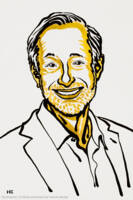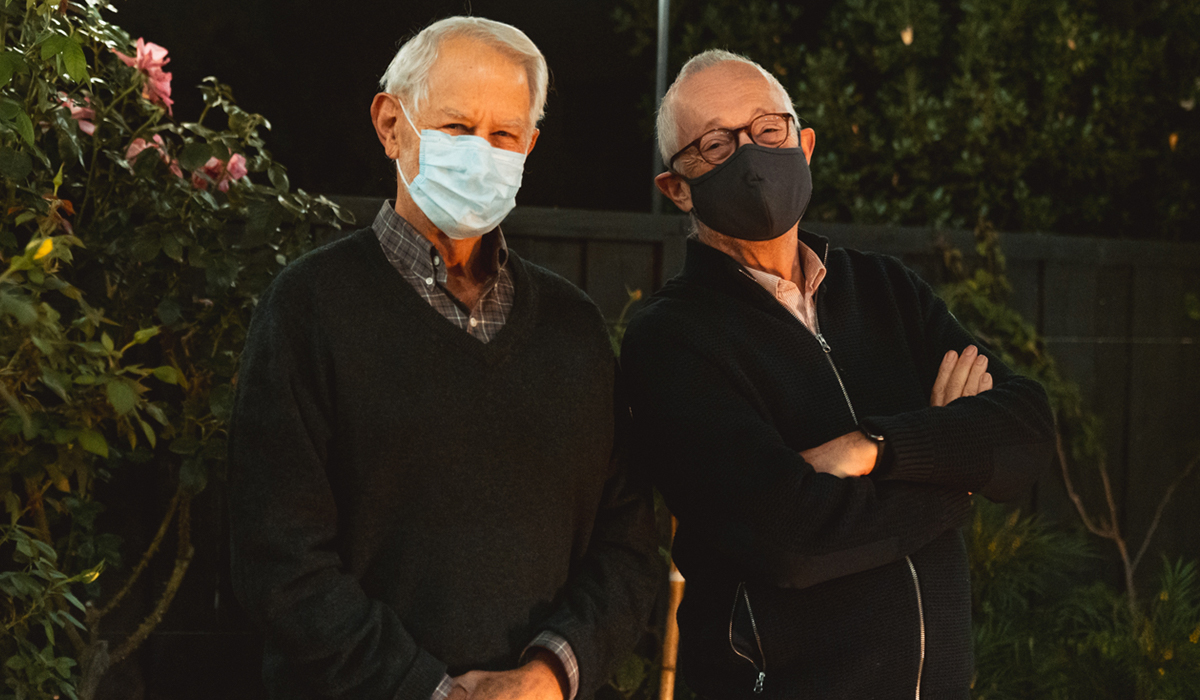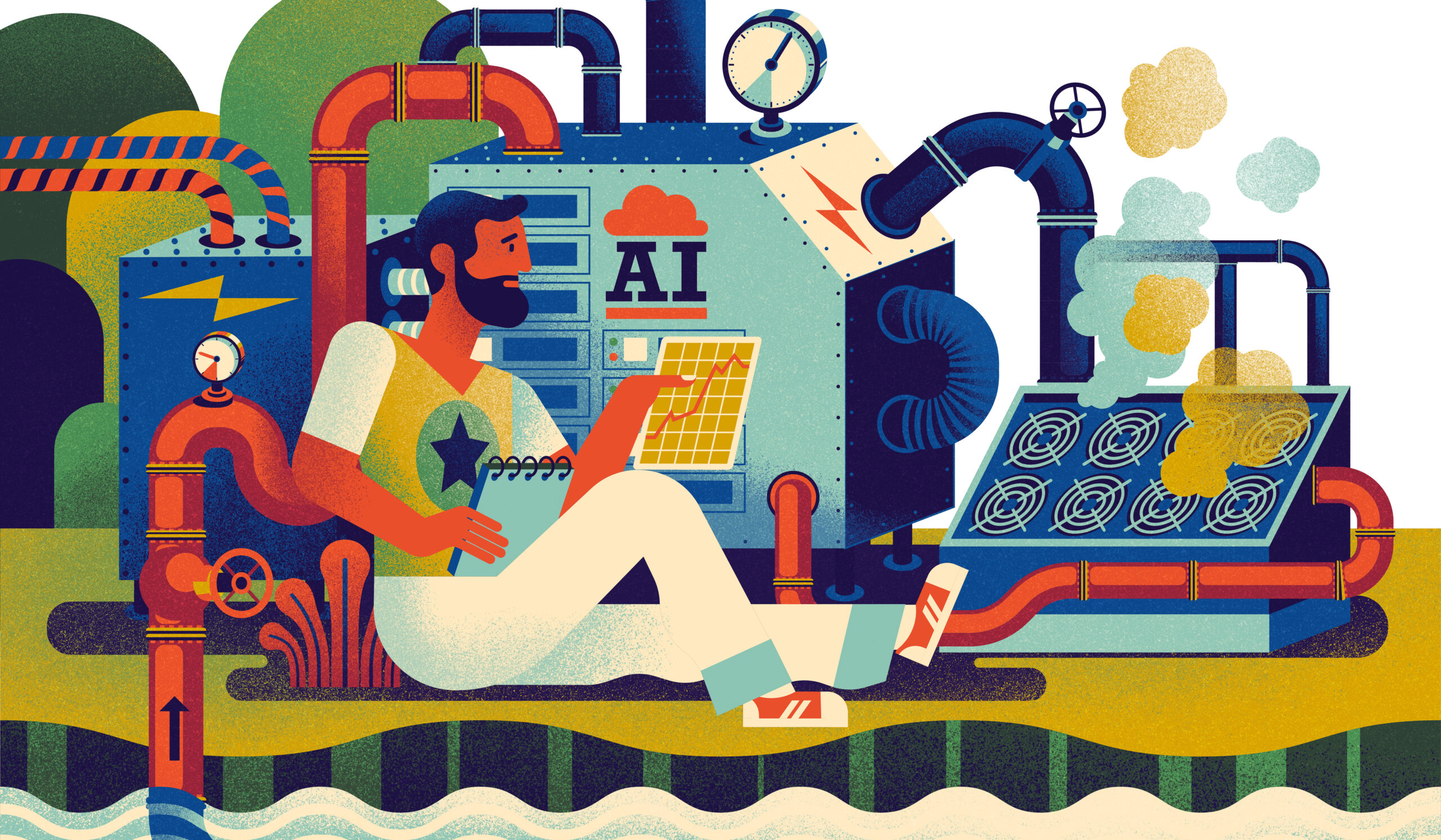Paul Milgrom, ’71, won’t soon forget the early-morning hours of Oct. 12, 2020. After all, it’s not every day a Nobel Prize announcement comes at the front door.
In a widely viewed video, Milgrom’s doorbell camera captures his neighbor, mentor, and Stanford University colleague Robert Wilson approaching Milgrom’s home just after 2 a.m. to deliver news that Milgrom had won the Nobel Prize in Economic Sciences.
“His exact words were, ‘You won the Nobel Prize.’ But, of course, we both won it,” Milgrom says of Wilson, whom Milgrom trained under as a Stanford graduate student in the 1970s. “To share this with him is just perfect.”
Twenty minutes after Wilson’s appearance, one of Milgrom’s former students arrived with a bottle of Champagne. Soon, the fire pit cooked as socially distanced guests filtered into Milgrom’s backyard while he and Wilson conducted interviews with media outlets from around the globe.
“You don’t go back to bed,” Milgrom says of the celebratory morning.
The greatest reward, however, came in the following hours and days as family, friends, colleagues, and former students and classmates shared congratulatory notes and pride in Milgrom’s noteworthy accomplishment.
“That’s the part that’s hard not to react to and really gets to your heart,” says Milgrom, a Detroit native and Stanford economics professor since 1987 following faculty stints at Northwestern and Yale.

The prize honors Milgrom and Wilson “for improvements to auction theory and inventions of new auction formats.” The academic tandem’s work has improved the design of auction formats for goods and services that are difficult to sell in a traditional way.
“This year’s Laureates in Economic Sciences started out with fundamental theory and later used their results in practical applications, which have spread globally,” said Peter Fredriksson, chair of the Economics Sciences Prize Committee, of Milgrom and Wilson’s pioneering work. “Their discoveries are of great benefit to society.”
The practical applications, in particular, drive Milgrom, who ties his focus on applied research to his Midwestern roots; the challenging, inquiry-driven nature of his U-M education; and a five-year run as an actuary following his graduation from U-M.
“I get inspired by practical questions and push to find the right answer,” he says.
To wit, Milgrom played a prominent role in shaping the modern telecommunications industry. In the 1990s, he worked alongside Wilson and fellow economist Preston McAfee to develop an auction format for the Federal Communications Commission’s (FCC’s) first-of-its-kind radio spectrum auctions. Other nations later mimicked that design auction, resulting in the allocation of licenses worth more than $100 billion.
“The FCC project allowed me to put theories into real-world action, and that’s the energizing piece,” says Milgrom, whose auction design work also includes advising Google on its IPO auction of shares, Yahoo! on the design of an advertising marketplace, and Mexico on privatization auctions of state-owned assets.
He adds that auction design can help improve resource allocation, which, in the age of COVID-19, could include distributing medical supplies, such as vaccines, respirators, and personal protective equipment. The potential of that work and other research efforts excites, especially when paired with the credibility of his recent award.
Auction design can help improve resource allocation, which, in the age of COVID-19, could include distributing medical supplies, such as vaccines, respirators, and personal protective equipment.
“The Nobel Prize is the one everyone around the world knows about, and it means some of my bolder ideas are going to get more attention,” Milgrom says during a Zoom interview where he appears in front of a background of the bridge of the Starship Enterprise.
For Milgrom — whose work has long extended well beyond auction theory and into fields such as industrial economics, game theory, economic history, and organization and management — advances in computer science and the interplay of complex markets hold particular intrigue today.
“I explore a lot because I just want to have fun,” he says, adding that his commitment, precisely as it was before Wilson’s since-viral visit, remains to his research and students. In fact, the evening of the Nobel Prize announcement, Milgrom led his regularly scheduled meeting with his team of graduate students.
“I’m headed to the same place I was before this award: to my office to do research and work with students,” he says. “This is my life’s work and what I do, and it’s a great way to live.”
Even if it means losing some sleep to answer a knock at the door.
A frequent contributor to Michigan Alumnus, Daniel P. Smith has penned profiles of notable alumni such as business tycoon Sam Zell, U.S. Congresswoman Grace Meng, and Five Guys’ founder Jerry Murrell.





